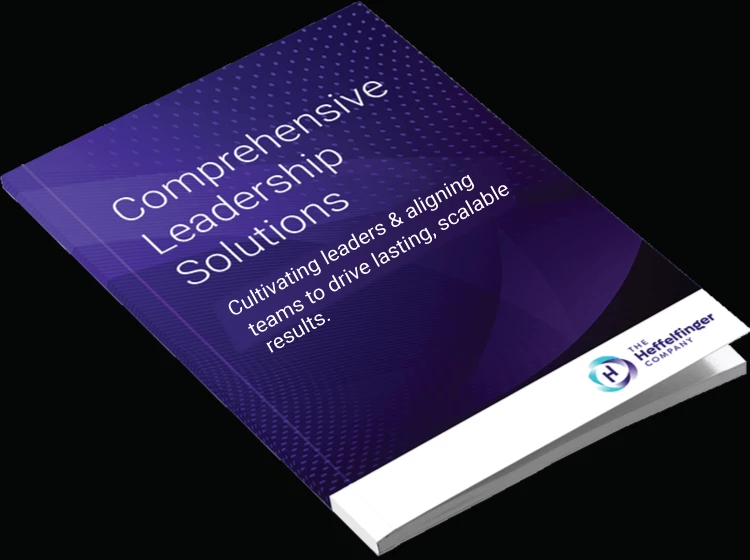"Without proper self-evaluation, failure is inevitable." ~ John Wooden
Introduction
Leadership Assessments
In today's blog, we will discuss leadership assessments and their uses in the practice of executive coaching and organization development consulting. Lori and I both use assessments in our coaching and consulting practices to enhance the process.
Having an engineering background, I love assessments. Assessments give me the feeling that I am using actual data, something concrete, to do my work, which is in areas that are not concrete and nonlinear.
To select the right assessment, it is necessary to:
- Know the type of data I need to gather to do my job well.
- Find an assessment that can collect and measure the data I need.
- Know how to use the assessment instrument's data to apply it appropriately and ethically.
Only when I am using the "right" kind of data, gathered by the "right" type of assessment, and applying that data correctly and ethically am I providing value to my clients or my client's systems.
There are a plethora of assessments on the market today. Many of these assessments claim to measure variables that they do not truly measure. Many claim that the assessment can be used to solve or improve people's issues, but they do not measure the variables that matter, nor do they measure them in a repeatable manner.
The key for the practitioner is to research the assessment's claims and understand the appropriate use of that assessment and the instrument itself, remembering that assessments do not solve issues other than the how of data collection. The actual application of the data gathered to the issue at hand is up to the person or team. The coach or consultant presents the data to the person or team and assists in the meaning-making of the data.
For example, a behavioral assessment may provide data about a team's behaviors. The assessment behaviors have been determined by experts in the field to be behaviors of a productive team. It is the coach's or consultant's role to help the team make meaning from the data and use that meaning to develop different behaviors that can be more productive. It is the person or team's role to take the actions of developing and acting on the new behaviors. In this scenario, we used the assessment to measure and make the behavior(s) visible. The assessment report may have provided actions to try out; however, the data's measurement and presentation are the instrument's critical role.
Leadership assessments are simply tools that leaders can use as guides in developing themselves as leaders. Some of these tools are highly researched and or based on social and behavioral sciences and can require extensive training, and some are not. That is one of the issues with assessments. Not all assessments are created equal nor measure what they claim to measure.
"The distance between number one and number two is always a constant. If you want to improve the organization, you have to improve yourself and the organization gets pulled up with you."
~ Indra Nooyi
How We Choose Leadership Assessments
First, we distinguish between real tests and masquerading fortune cookies by researching the instruments and reading the research the developers used – if available. (Mitchell Shack)
Then we look for psychometrically sound instruments, meaning that the assessments measure what they claim to measure and measures it repeatably. We also look for information on whether the publisher checked the instrument for bias that may skew the results.
Next, we look for situationally relevant assessments. Using an expensive, complex assessment for first-line supervisor introductory training would not be appropriate, nor would using a DISC assessment as a selection tool. The former because it is overkill and the latter because DISC is not validated for selection.
Finally, we look for assessments that provide actionable insights based on the data the instrument measured. If we are using the assessment in a regulated or litigious situation, we look for assessments validated for those applications. An example here is using instruments validated for selection when working in recruiting, i.e., PXT Select™, Hogan or Talentx7.
For leadership development and team building, we like to use psychometric assessments that measures psychological parameters. Some assessments give the leader a measure of themselves which they can use to compare to some ideal; others "label" the kind of leader or person they are. These instruments tend to be based on psychology theories and or based on someone's work, such as Jungian (MBTI) or Marston (DiSC).
Some leadership assessments are designed to give insight into areas where leaders need to focus more attention and reinforce the skills, they excel in. Some assessments measure personality traits and relate them to expected behaviors, and others measure behaviors and relate them back to personality traits. Many assessments measure the same characteristics and behaviors; however, they present the data in different and creative formats.
A Look at Different Leadership Assessments
For Leadership Development, we use assessments to help the leaders and their constituents become more self-aware. We tend to lead with the Everything DiSC Workplace® profile as our go-to assessment for a few reasons. First is the DiSC model's simple elegance; its focus on fast-paced versus moderate-paced and logic-focused versus people-focused.
The instrument is easy to understand, and when appropriately presented, is neither confronting nor labeling. Secondly, people succeed or fail based on relationships, and relationships are built one conversation at a time. The Everything DiSC Workplace® assessment helps people see how they prefer to communicate and shows how that preference interacts with others' preferences which may differ from theirs. It starts with the conversation and builds from there.
BUT not all DISC assessments are built the same. The Everything DiSC Profiles (i.e., Workplace, Management, Sales, Productive Conflict, Agile EQ, Work of Leaders, and 363) have substantial research supporting them that is available from the publisher, John Wiley and Sons, Inc. We are authorized Everything DiSC Partners, contact us for more information, to get certified or to purchase Everything DiSC assessments. We are loving Everything DiSC Catalyst Learning Platform to pair with assessments.
Another favorite set of assessments that also have extensive research supporting them are the Hogan assessments. They answer a range of questions related to leadership strengths and weaknesses, reputation, preferred work settings, and uniquely underlying derailers. We use these assessments in our Executive Coaching engagements for mid-to-senior leadership. These assessments are validated for selection, too. If you would like more information, both Lori and I are certified in the Hogan Leadership Forecast Series.
We like using emotional intelligence as an indicator of leadership performance. The EQ-i 2.0 is a valid and reliable tool that measures how we perceive and express ourselves, develop and maintain social relationships and cope with challenges. The clear measurements and guiding competencies make this tool a terrific addition to executive coaching engagements.
We offer the Enneagram assessment as well. This assessment helps clients with self-awareness based on the model called the Enneagram. The assessment classifies the subject into one of nine (9) personality archetypes. Skilled practitioners can work with the client to further examine and understand themselves and their personality's nuances.
360 Degree Feedback is an excellent way for leaders to learn what their organization thinks and says about them. We use two forms of 360 Assessments (Survey Format and Quality Interviews). Our go-to especially for Executive Coaching is qualitative interviews. We ask a preset series of relevant questions around the interviewee's expectations and relationship with the client. At a minimum, we interview a sample group of their boss, their peers, their subordinates, and depending on their role, other stakeholders, such as Board of Directors Members, internal and external clients. We feel this form of 360 assessment provides the richest data and even acts as an intervention in and of itself.
Another form of 360-degree assessment compares the individual results to those of other leaders, constituents, and stakeholders. These are usually completed via an online multiple-choice questionnaire with a few open-ended questions to allow the participant to respond with examples or comments. We offer the Everything DiSC 363 assessment or Leadership Practices Inventory (LPI) which fits this style or our client’s favorites.
We also offer The Leadership Circle assessment to provide executives with feedback on how others experience their leadership. The real power comes from the perspective and insights gained around reactive tendencies. This is a great tool to help executives shift from reactive to creative leadership, diving into the assumptions behind the reactive tendencies and engaging in creative leadership skills.
Wrapping Up
At the Heffelfinger Company, Inc, we believe in using well-researched tools. We use tools that are simple and effective. We find that this type of tool is what tends to stick with extremely busy leaders. As with all tools, it is not the tool that makes the most difference, it is the practitioner's skill in choosing the best tool for the given situation and using it in the most effective way for the client. We design leadership programs focused on the client's needs choosing the appropriate tools as we go. We also have some customizable pre-designed programs that feature the use of the Everything DiSC® products.
Warmly,
James and Lori
James Jackman, MSOD & Lori Heffelfinger, MSOD
310-543-7632 office








